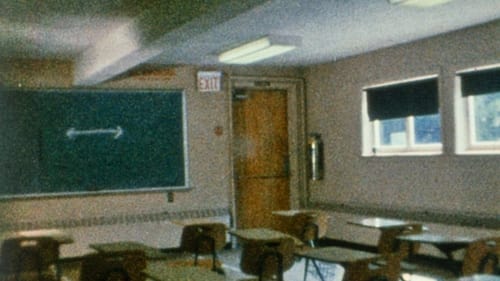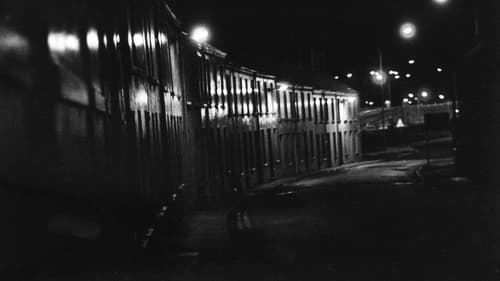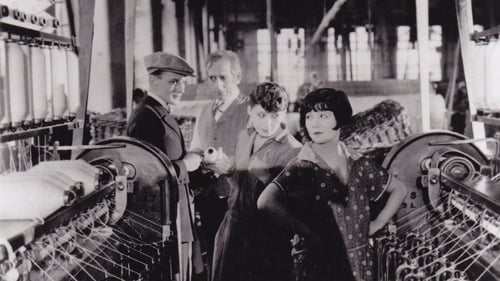Images of Asian Music (A Diary from Life 1973-74) (1974)
ジャンル :
上映時間 : 29分
演出 : Peter B. Hutton
シノプシス
A contemplative, seemingly timeless record of the years Hutton spent in Southeast Asia while working as a merchant seaman. Jon Jost writes, "The film is rich with truly wonderful visions: a thick, white porcelain cup perched on a ship's rail, the tea within swaying gently in sync with the ship while the sea rushes by beyond
the faces of crewmen posing awkwardly but also movingly for the camera; a cockfight on ship; scenes from a bucolic pre–Pol Pot Phnom Penh. Images has the haunting elegiac resonance of Eugène Atget's Paris, the echo of a time and place that was." - MoMA

Experimental filmmaker James Benning returns with this abstract documentary about California's Central Valley. Consisting of 35 shots, each over two minutes long, the film quietly portrays nature's subjugation to encroaching commercial interests. This film was screened at the 2000 Sundance Film Festival.

Multifarious images of a lake are overlaid with water effects and a narrated history of the campaigns fought by the fictional water-wracket army.

On the island of Tanna, a part of Vanuatu, an archipelago in Melanesia, strange rites are enacted and time passes slowly while the inhabitants await the return of the mysterious John.

The Mantis Parable is the charming tale of a humble caterpillar trapped in a bug collector's jar and in need of a helping hand.

A camera moves back and forth at an increasing pace. Back and forth, back and forth...

Exploring the art of Armenian portraitist Hakob Hovnatanyan, Parajanov revives the culture of Tbilisi of the 19th century.

The Darkhad and Soyon Uriyanghai peoples live in a vast valley in Northern Mongolia, much as their ancestors have for centuries. "Taiga" is the record of a long period spent by the German filmmaker Ulrike Ottinger among these people.

It’s a black-and-white record of European cities in the dark (2-5am), from Basle to Belfast. Quiet, and meditative, what emerges most strongly is an eerie sense of city landscapes as deserted film sets, in which the desolate architecture overwhelms any sense of reality. The only reassurance that we are not in some endless machine-Metropolis is the shadow of daytime activity: a juggernaut plunging through a darkened village, a plague of small birds in the predawn light. The whole thing is underscored by a beautiful ‘composed’ soundtrack, from quietly humming streetlights to reggae and the rumble of armoured cars in Belfast. A strange and remarkable combination of dream, documentary and science-fiction.

A stunning study of real-time light changing from day to night which was filmed in a forest high up in California’s Sierra Nevada Mountains

On May 30, 1889 the South Fork Dam, which maintained a pleasure lake for wealthy Pittsburgh industrialists and their families, failed due to very heavy rains and poor maintenance by the dam's owners. The burst dam sent a wall of water and debris, 40 feet high and half a mile wide, 14 miles downstream to the bustling industrial city of Johnstown, Pennsylvania. More than 2000 people lost their lives in the disaster. This documentary tells the story, and tells us that the disaster was easily avoidable.

A naive, good-hearted Los Angeles waitress does not think twice about helping her troubled roommate. Unfortunately, her help lands her in Central America fleeing for her life with a grungy mercenary

Raymundo Gleyzer's documentary on o community of Pottery Makers in the west of Cordoba province in Argentina who create pieces to sell to the tourists.

A young Acadian woman spends years searching for her lost love after the two are separated and forcibly relocated by the British.

A film made for the Central Office of Information concerning Britain's coastline, with music by Michael Nyman.

Chapter Two represents a continuation of daily observations from the environment of Manhattan compiled over a period from 1980-1981. This is the second part of an extended life's portrait of New York.

In Titan's Goblet refers to a landscape painting by Thomas Cole circa 1833. The film is intended as a homage to Cole, who is regarded as the father of the Hudson River School of painting.

An affectionate portrait of the left-wing publisher and bookshop owner François Maspero, who was a contributor to Far From Vietnam and would later publish the commentary to Le Fond de l’air est rouge. Maspero is one of the most satisfying and likeable of Marker’s films from this period, achieving an exemplary balance of quirky human warmth with a clear and inventive form of political argument.

In 2005, a suicide bomber walked into Ashraf's wedding, killing 27 people. Now he is on a quest to confront terrorism around the globe.

July ’71 is as much a record of the daily experiences of light and shadow as it is a catalogue of domestic life. More involved with “straight photography” than Brakhage, but far more engaged with tactility and the plastics of the image than Jonas Mekas, this early work embraces the mundane—making bread in the kitchen, riding bikes by the San Francisco Bay, hanging out in a cheap-looking flat with friends, plucking a game fowl for supper—while also paying attention to the wind, water, and trees that surround these fleeting moments.

A young working-class girl causes a stir when she sneaks off for a romantic getaway with the wealthy heir of the mill where she works.






